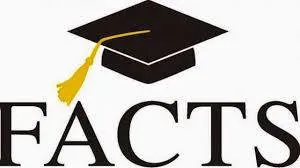Introduction:
In the Rowley decision of 1982, the Supreme Court wrote,
Bạn đang đọc: Blind Deference – My School Psychology
Thus the provision that a reviewing court base its decision on the “preponderance of the evidence” is by no means an invitation to the courts to substitute their own notions of sound educational policy for those of the school authorities which they sentayho.com.vn of Ed v Rowley, 1982

This has been widely interpreted to mean that federak courts were to always give deference to school educators in matters of policy and methodology.
The Standard Revisited by the Circuit (and lower) Courts
However, while on the face of it true, that was never really the case. (In spedlaw, nothing is ever exactly what it seems.) The Tenth Circuit has suggested that there is one major difference between a de novo decision and a modified de novo decision under the IDEA. If a district court judge disagrees with the decision made by a hearing officer (a.k.a an administrative law judge) and/or a state hearing review officer, in a modified de novo case under the IDEA, he or she must explain why. That’s it. Which pretty much leaves a hole large enough to drive a truck through. The devil, however, is in the details, hence the longer discussion which follows.
The Supreme Court’s dicta, of course, was aimed at the courts, not at hearing officers or state hearing review officers. States by law have ultimate authority for ensuring that public schools comply with the IDEA, so subsequent courts have included hearing officers and state hearing review officers under the umbrella of “school authorities.” Those administrative law judges are thereby accorded the same deference that would be accorded any school authority, while their authority to weigh the methodology and policy arguments made by the parents’ educational experts against those of the school itself is also recognized. On the other hand, they are under no obligation to give any deference whatsoever to the school system. In most states, a more general principle applies, that being that the party challenging the status quo, in almost all (but not all) hearings that party being the parent. (Some states, however, have passed laws putting the burden on the schools, no matter who brings the lawsuit. Check your state laws.) Nevertheless, schools being challenged by parents who presumably have their own expert witnesses must expect to provide more evidence regarding the appropriateness of their program than just their say-so. The whole notion of “deference” doesn’t kick in until or unless one party or the other appeals to a district court.
As the Ninth Circuit observed in Amanda C. v Clark County in 2002,
Because Congress intended states to have the primary responsibility of formulating each individual child’s education, we must defer to their “specialized knowledge and experience” by giving “due weight” to the decisions of the states’ administrative bodies. Id. at 206-08.
While the decisions of hearing officers (a.k.a. administrative law judges in some states) and state were entitled to deference, that did not mean blind deference either. There have been many examples both before and since the Amanda C. decision illustrating that the “rare exceptions” are nowhere near as rare as one might expect..
On July 28, 1988, the Third Circuit in Polk v. Susquehanna Intermediate School Unit 16 (IU), Third Circuit , 1988 wrote:
Finally, we do not read the Supreme Court’s salutary warnings against interference with educational methodology as an invitation to abdicate our obligation to enforce the statutory provisions that ensure a free and appropriate education In this decision, the court also held an opinion universally endorsed by other circuits since, that is, “We hold that the EHA calls for more than a trivial educational benefit.”
Taken together, all of those principles have had significant implications for much of spedlaw litigation since. For example, in the late eighties and nineties, schools were losing the majority of their methdology cases regarding autism to parents seeking tuition reimbursement for unilateral private school placements. When schools were unable to show evidence that their interventions were time tested and proven to provide children with autism a resonable expectation of non trivial benefit, and parent advocates could provide abundant data showing their choice was proven to help autistic children — the schools lost. Amanda C. above was just one of many. Once schools realized that they needed to provide research based interventions (and this was long before NCLB or the IDEA 2004) and, preferably, data showing that the intervention had provided meaningful benefit for that child, the odds began to shift in their favor.
T.B. v. Warwick School Committee, First Circuit, March 18, 2004. In this case, the hearing officer had ruled in favor of the parents. However, both the district and circuit court reversed. The reason here was that the Hearing Officer had rejected the district’s methodology based on alleged procedural errors, not on substance, and the district court found that the facts did not support the that finding. Deference was given . . . but in this case to the school system, not the Hearing Officer. What this writer found interesting was that the district court did not find the hearing officer’s findings of credibility credible . . .which in Amanda C. above constituted grounds to overturn the district court’s opinion. But in this case, the district court judge found that the grounds for rejecting the district expert’s testimony were flawed and documented the reasons for finding them flawed. Which once again shows that even when you think you’ve got a bedrock principle supporting your position, there are no slam dunks in special education litigation.
(Also see Wrightslaw’s summary of case kaw regarding FAPE, ABA, and Lovass and and also his Summary of Autism Case Law ).
The Amanda C. decision, which also rejected a de minimus standard of progress for establishing FAPE, was followed by a district court decision in 1991 that also addressed deference.
In Johnson v. Lancaster-Lebanon Intermediate Unit 16 (IU), District Court, 1991, case, the judge wrote, in an early rephrasing of the principle above, that
Like Judge Becker, this court does not read Rowley to mean that it should accept the IU’s opinion out of blind deference to their expertise in special education.
They also cited a First Circuit court case providing the following guidance to district courts:
The First Circuit recently stated that a district court
. . . must . . . be deferential [to the administrative agency], recognizing `the expertise of the administrative agency, . . . consider[ing] the [agency’s] findings carefully and endeavor[ing] to respond to the hearing officer’s resolution of each material issue.’ (Quoting Burlington, 736 F.2d at 791-92). Jurists are not trained, practicing educators. Thus, the statutory scheme binds trial courts to give `due weight’ to the state agency’s decision in order to prevent judges from `imposing their views of preferable educational methods upon the States.’
Ultimately, this case was about a child who was deaf was decided based on whether or not the child’s IEP was reasonably calculated for him to receive more than non trivial benefit. The decision that it was NOT appropriate was based, not on the district’s choice of methodology, but because that methodology and the child’s IEP were not tailored to his individual needs.
In Amanda C (above) the State Hearing Review Officer (SHRO)’s decision was overturned in favor of the Hearing Officer (H.O.)’s decision in part because of the weight the state reviewer gave to the credibility of one of the key witnesses. He had held that the testimony of one of the witnesses was not credible, whereas the H.O. had found that same witness very credible. The court held that on that point, the H.O.’s opinion was entitled to deference. This decision was not the first time a circuit court had opined on this issue, and the Ninth Circuit wrote:
We also agree with our colleagues in the Second, Third, Fourth, and Tenth Circuits that when an SRO overturns the credibility determinations of an HO, due weight to the decision of the SRO is not warranted. The Fourth Circuit has held, for example, that in situations where two state administrative decisions differ only with respect to the credibility of a witness, the HO is “entitled to be considered prima facie correct.” Doyle v. Arlington County Sch. Bd., 953 F.2d 100, 105 (4th Cir. 1992). In Doyle, the SRO reversed the HO’s decision on the grounds that a particular witness’s testimony was not credible even though the SRO had neither seen nor heard the witness testify. Id. at 104.
Am I Eligible?
Rowley did not explicitly address eligibility issues, because it was obvious to everyone that being deaf adversely affected Amy’s educational performance. Decisions regarding the amount of deference to be given regarding eligibility decisions appear to have been split. In eligibility disputes, the Ninth concluded that deference must be given to the SHRO, because
This standard comports with general principles of administrative law which give deference to the unique knowledge and experience of state agencies while recognizing that a HO who receives live testimony is in the best position to determine issues of credibility.

A Split Decision
However, not all the circuits have agreed with the Ninth’s position on eligibility decisions. In a split with the Ninth, in the Muller v Islip, Second Circuit, May 22, 1998, decision, the court acknowledged the direction given in the Rowley decision above, but then went on to say,
Here, however, the district court was not faced with the typical question raised in cases brought under the IDEA, that is, whether the particular IEP adopted by the school district for the student satisfied the IDEA’s requirement that the disabled child receive a “free appropriate public education.” See 20 U.S.C. § 1400(c). Rather, the issue before the district court was whether the school district properly classified Treena as an individual with or without a disability in the first instance. Treena was not provided with an IEP pursuant to the IDEA because the CSE determined that she was not disabled as that term is defined under the IDEA. The dispute, therefore, is not whether the CSE developed an IEP for Treena that was “reasonably calculated to enable [her] to receive educational benefits,” Rowley, 458 U.S. at 207, 102 S.Ct. 3034 but rather, whether she satisfied the definition of “emotionally disturbed” set forth in the relevant state and federal regulations.
Resolution of this issue involves interpretation of the IDEA and the definition of “emotional disturbance” under the applicable federal and New York State regulations. In this matter of statutory interpretation, the district court was as well-positioned as the state administrative officials to determine Treena’s eligibility.
So, in short, depending on where you live, courts may or may not give any deference whatsoever to an H.O. or S.H.R.O. decision regarding eligibility determinations. The general rule (“general” because it does not always apply) is that courts will almost always give deference to the state hearing review officer’s finding of fact but try the case de novo when reviewing the application of legal standards. exceptions to tis this general rule may occur if the district court judge finds that the hearing officer (administrative law judge) did not give careful consideration to the the evidence provided or committed clear error (e.g., citing state regulations a boy with autism as a pregnant school girl. And while appeals courts will amost always defer to hearing officers’ assessments of a witness’s credibility, again, that is not always the case. When district court judges do substitute their own judgement for that of a state hearing review officer, tthey must clearly state why because his or her decision will almost (that word again) always be appealed to a circuit court.
For example, , in R.L. v. Miami Dade School District, Eleventh Circuit, July 2, 2014, the court opined,
But the ALJ is not entitled to blind deference. The District Court is free to accept the ALJ’s conclusions that are supported by the record and reject those that are not. Loren F., 349 F.3d at 1314. At the same time, when the District Court rejects the ALJ’s conclusions, it is “obliged to explain why.” Id. at 1314 n.5 (quotation mark omitted).
(Author’s Note: An ALJ or Administrative Law Judge is just another state’s name for a Hearing Officer.)
So . . . putting that in plain English . . . district courts are not required to give an ALJ any deference whatsoever if they determine that his or her conclusions weren’t supported by the record, as long as the judge gives a reason for the disagreement. Or putting it still another way, if on the other hand, the court concludes that the ALJ or H.O. decision was well-reasoned, then of course the judge would give deference to that administrative decision. In short, deference is required when the judge agrees with the state review officer, but if the judge doesn’t agree, it’s Katy, bar the door for one party or the other.
Tìm hiểu thêm: Điện não đồ: Khái niệm, quy trình thực hiện và kết quả • Hello Bacsi

A Court Considers ED Eligibility
For an example of what happens when a judge does agree, see Springer v. Fairfax, Fourth Circuit, January 1998. The Fourth began its discussion by citing the quote from the Supreme Court decision in Rowley. Then it went on to say it agreed with the state review officer’s decision. But then, instead of just saying that it was deferring to the state review officer’s decision, it went for fourteen pages explaining why it agreed. Which creates the impression that they deferred because they agreed with the SRO, not because they felt obliged to defer if they had not. Also, different facts may lead to different outcomes, even when the principles remain the same.


>>>>>Xem thêm: Administrative staff là gì và con đường phát triển sự nghiệp | sentayho.com.vn

